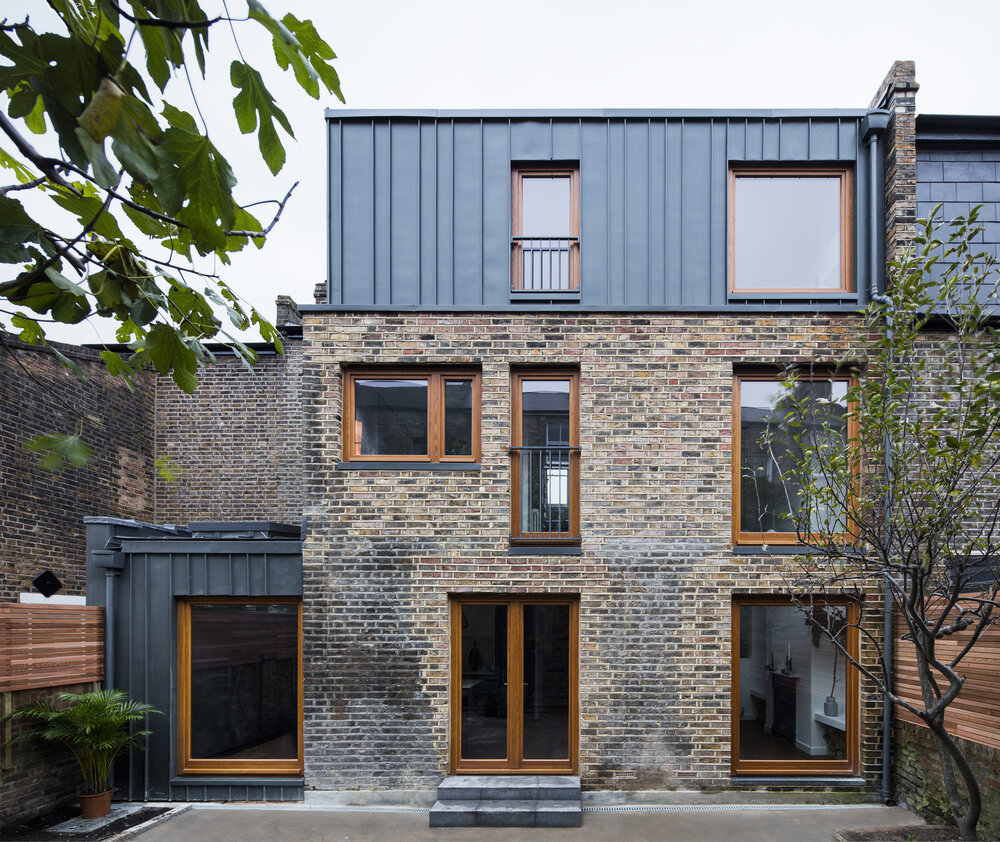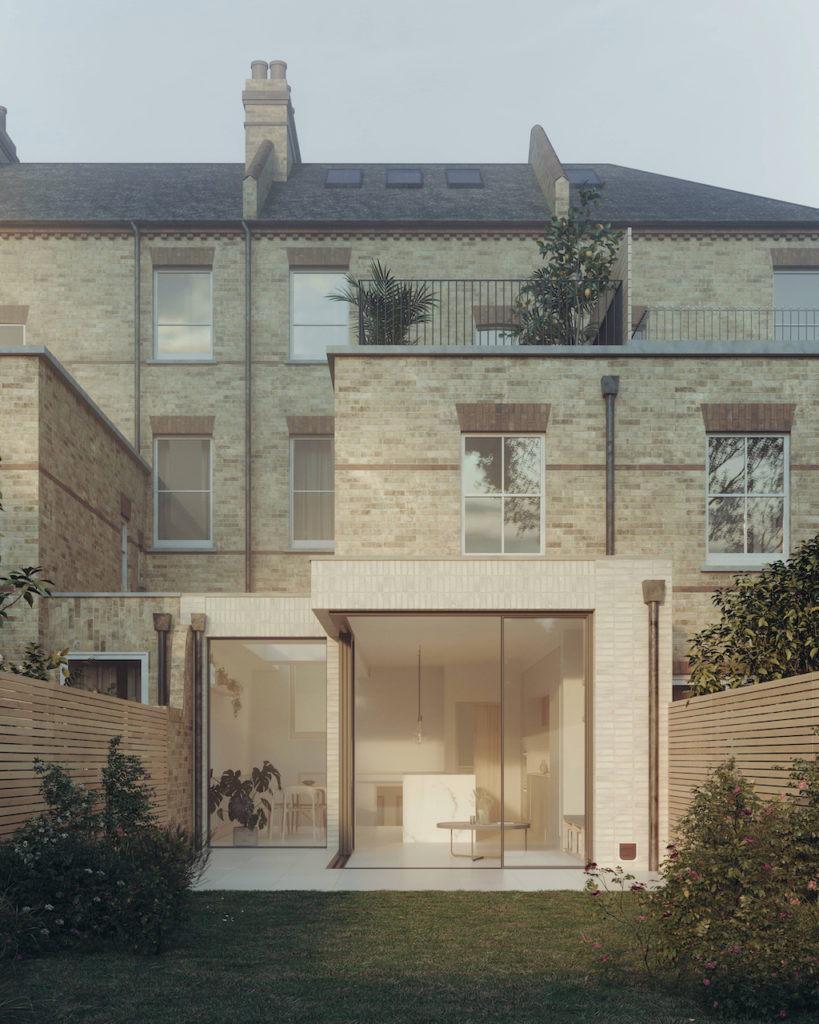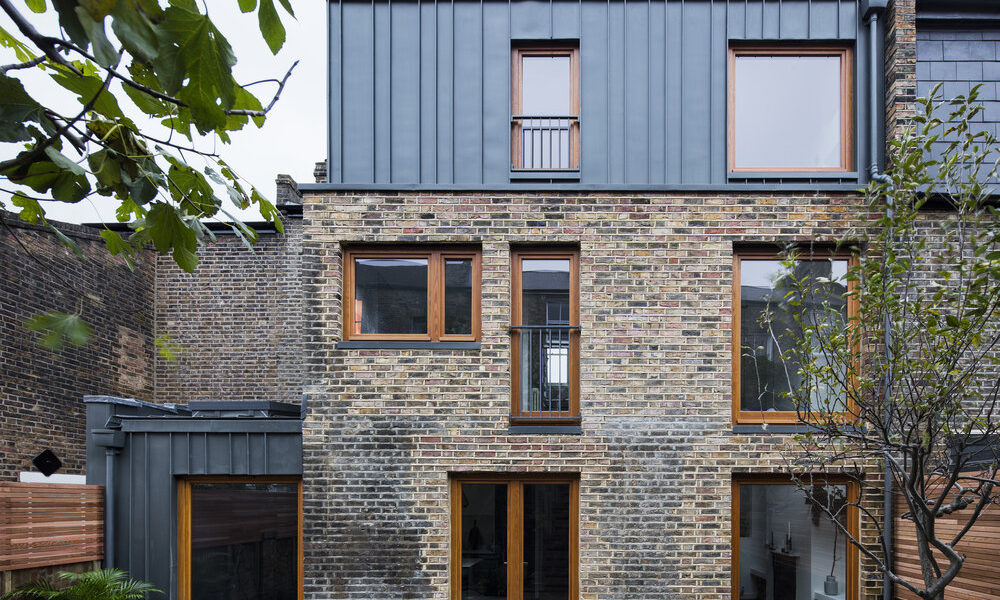Building a new home is an exciting but daunting journey and one of the questions at the forefront of your mind is no doubt – how much will it cost?

The cost of building a new house in the UK in 2023 hinges on many factors, from its size to location, the complexity of the design and quality of materials used.
We would expect our clients to spend between £3,500-£4,500 per square metre for the construction of a new-build home in London – before the cost of buying a plot, site preparation and professional fees.
By this rule a 3-bedroom house of 100 square metres could cost around £400,000 to build, while a 5-bedroom of 200 square metres house may cost in the region of £800,000.
It is worth noting that there are many exceptions to this rule of thumb, and if your project requires complex work such as the excavation of a new basement, or you plan to kit your home out with a top of the range kitchen or bespoke cabinetry, costs can easily exceed £4,500 per square metre. Conversely, you could find your costs significantly reduced if you build your home outside the capital or manage some aspects of the project yourself.
See our recently completed residential projects
What other costs are involved in building a house?
There are several other considerations when contemplating the cost of building a new house. Fees for your architect, specialist consultants and planning applications can add up to 20-25% on top of your build cost, for instance.
- Architect’s fees
Working with an architect to bring your vision to life can range from producing a set of designs to managing your project right through to completion. Fees are typically 10-15% of your build cost depending on your architect’s involvement.
- Planning fees
The cost of submitting a full planning application for a house is £494.20. But projects with controversial designs or a sensitive context may require pre-planning advice at extra expense. Your architect will be able to advise if this is necessary. - Land purchase cost
The cost of buying a plot of land varies wildly depending on your location and the size needed for your project. There are also costs associated with financing the purchase of your site, surveys, stamp duty and legal costs. - Consultant fees
Fees for consultants depend on the complexity of your project. You should expect to have a structural engineer, energy consultant, approved building inspector and party wall surveyor involved in your build, but you may require further specialist advice related to specific issues of a conservation area or an Area of Outstanding Beauty. You can find the cost of some of the professional fees you might expect to pay in our article sharing the budget breakdown for a house extension. - Site preparation
Existing site conditions can impact the cost of your build. When considering buying a site for your home, talk to your architect about how it will need to be prepared to avoid unexpected costs. Demolishing an existing structure or selecting a site with tricky access for workers and materials can add expense. But there could be structures or materials suitable for reuse that could reduce your costs. There will also be some preliminary costs associated with the site set up, from securing it against trespassers to providing a power supply. - Tax
The construction costs of building a new-build house are tax free. But VAT is still be payable on professional fees. - Site services
There will be costs to connect your plot to the mains electricity, water, sewers and gas if it is not already. - Insurance
You need to arrange a self-build insurance policy to cover you, your builders and your site for the duration of your project.
Case study: A House for Three

Our renovation and extension of a three-storey mid-terrace house in north London involves several of the complex design and build features discussed – the excavation of a new basement, a loft conversion and a ground floor extension alongside energy-saving upgrades to the existing home.
The builder for the project has priced these works at £780,000 – or £3,545 per square metre – for completion in 2023.
The budget is allocated as follows:
- Preliminary works and demolition: 20%
- Drainage, plumbing and electrical installation: 20%
- Foundations, drainage and underlying structure: 10%
- Structural work and roof: 15%
- Fixtures and finishes: 35%
The largest portion of the budget for this build is assigned to the demolition of unneeded structures on the site, excavation to form a new basement level, as well as external works such as installing new services for the extensions.
Internally, the biggest outlays are for bespoke staircases linking the new basement and loft spaces, glazing and a space-saving sliding pocket door.
Some of the most cost-effective – and sustainable – aspects of the project have been the decision to refurbish existing materials such as the floorboards. Dulux Trade paints have also been specified for all rooms, and the client is sourcing some of their own materials such as bathroom tiles and flooring.
Compare the cost breakdown for a side return extension
Use our architectural construction cost calculator
We have developed a construction cost calculator for residential projects, updated for 2023 price per square metre build cost prices for London and the UK. The cost calculator is to be used as a guide only. It is always best to plan and engage with a well-established residential architecture company.
What factors affect the cost of building a house in 2023?
The impact of COVID-19, the war in Ukraine and Brexit forced the price of energy, labour, The impact of COVID-19, the war in Ukraine and Brexit forced the price of energy, labour, materials and lending up in 2022, and these costs remain elevated in 2023.
We are finding that lead times for materials have also grown significantly and are currently prone to fluctuating. We do our utmost to source materials in good time, but delays are making it harder for us to guarantee that an item will be available when its needed.
To help keep your build on schedule, we may need to agree back-up options for key materials and fixtures. This might be a more expensive – or cheaper – option than originally desired, and reserving a little extra budget for unforeseen supply chain delays will make this process more comfortable.
While this feels like a period of uncertainty, it may be several months down the road before your project begins to take shape. Your architect and builder will be able to work with you to factor these ever-adjusting costs into your budget from the offset, and ensure there are no compromises to life in your new home.
More from our blog


